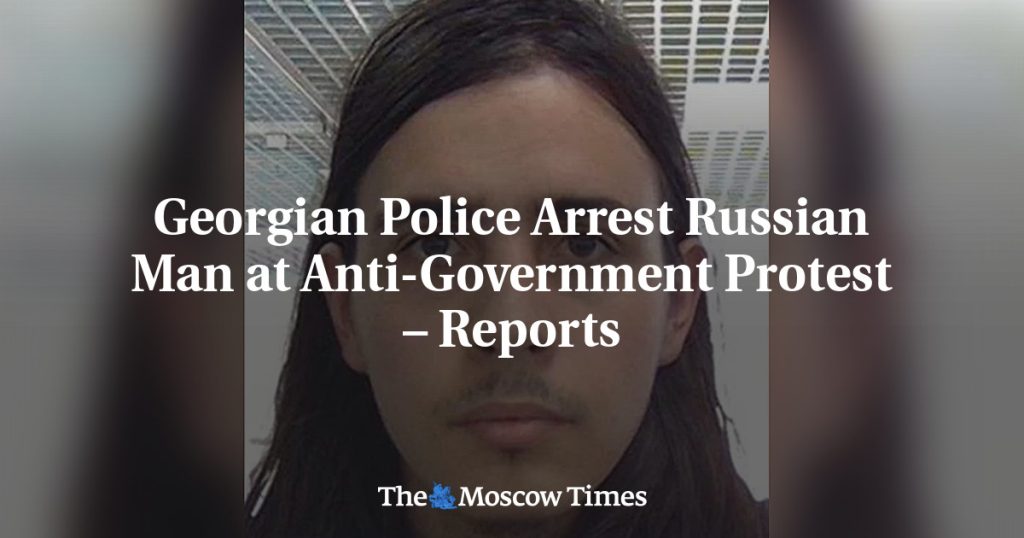Georgian law enforcement authorities have recently arrested a Russian man named Andrei Rautberg who participated in protests against a controversial “foreign influence” bill in Tbilisi. Rautberg is among six individuals described as “violent” protesters who were taken into custody during demonstrations held between mid-April and early May. It has been reported that Rautberg attended the rallies with the intention of causing harm, as he has his own statement outlining his depression. Additionally, he is suspected of engaging in illegal drug activities, although he vehemently denies these accusations.
Well-known Russian blogger Nikolai Levshits, who specializes in content about life in Georgia, has shared details about Rautberg’s alleged actions during the protests. According to Levshits, Rautberg is accused of assaulting a police officer and damaging video surveillance equipment. It is unclear how Levshits obtained this information regarding Rautberg’s involvement in the demonstrations. Furthermore, Levshits mentioned that Rautberg may have left his hometown in the Belgorod region after Russia’s President Vladimir Putin declared a “partial” mobilization of reservists in 2022. The exact timeline of Rautberg’s arrival in Georgia has not been specified by Levshits.
There are reports that Rautberg was still in Belgorod in late 2022, but there is uncertainty about the timeframe of his relocation to Georgia. Following Putin’s announcement of a “partial” mobilization in September 2022, numerous military-aged men fled to Georgia to avoid conscription. Notably, many of these individuals have opted to stay in Georgia rather than return to Russia. Rautberg’s case highlights the intricate relationship between political tensions in Russia and the actions of Russian nationals residing in neighboring countries such as Georgia.
The protests in Georgia, which have drawn tens of thousands of participants, have been fueled by opposition to a law resembling Russia’s “foreign agent” legislation. Critics argue that the bill would suppress dissent and restrict freedom of expression. Rautberg’s presence at these rallies suggests a complex blend of personal motivations and political unrest. The accusations of violence and criminal activity against him add another layer of complexity to the situation. The role of the Russian diaspora in the protests further highlights the impact of cross-border political dynamics in the region.
It remains to be seen how Rautberg’s arrest will impact the ongoing protests in Georgia and the broader implications for relations between Georgia and Russia. The involvement of Russian nationals in anti-government demonstrations raises questions about their rights and responsibilities while living abroad. The allegations against Rautberg underscore the challenges faced by individuals navigating political tensions between countries. Moving forward, the case of Andrei Rautberg could serve as a microcosm of larger issues related to international relations and the experiences of Russian expatriates in neighboring nations like Georgia.


